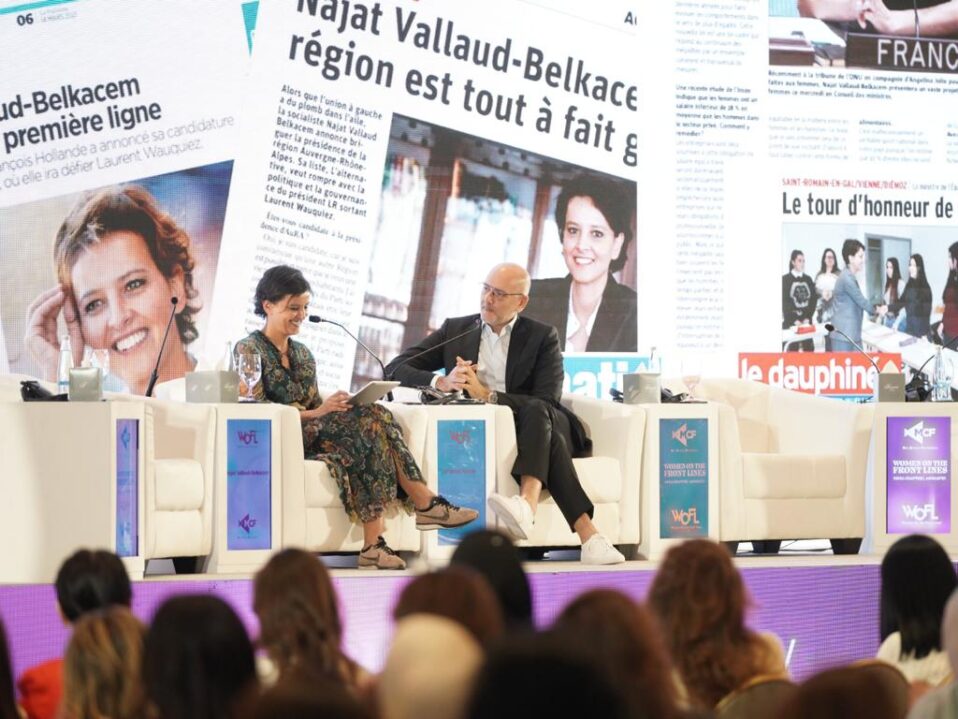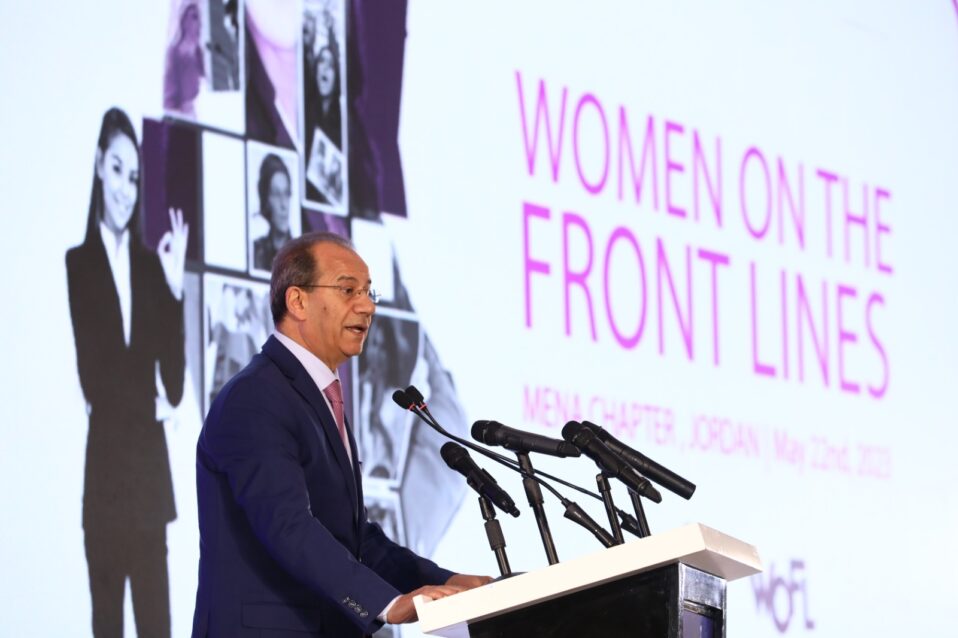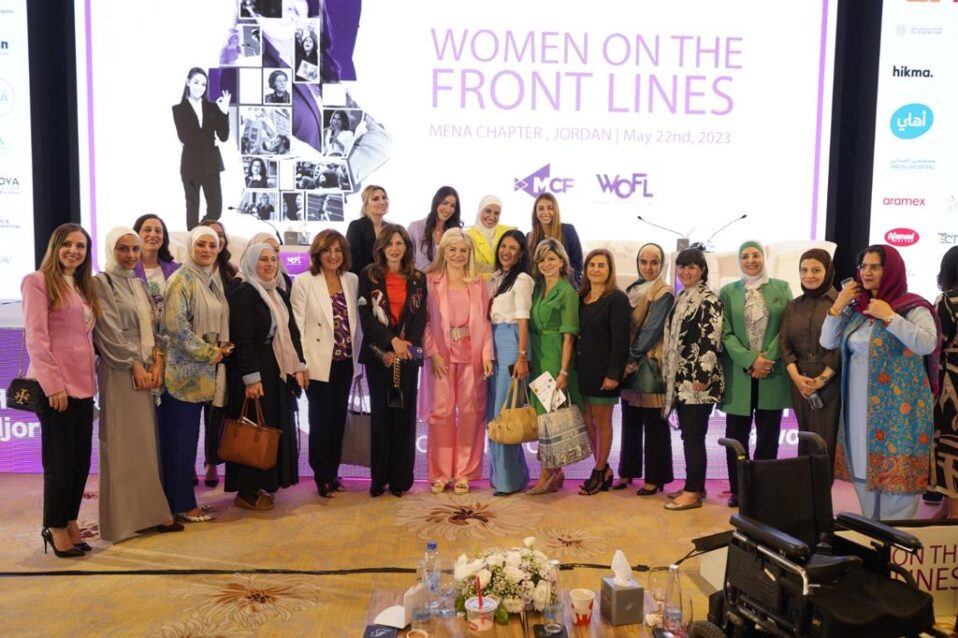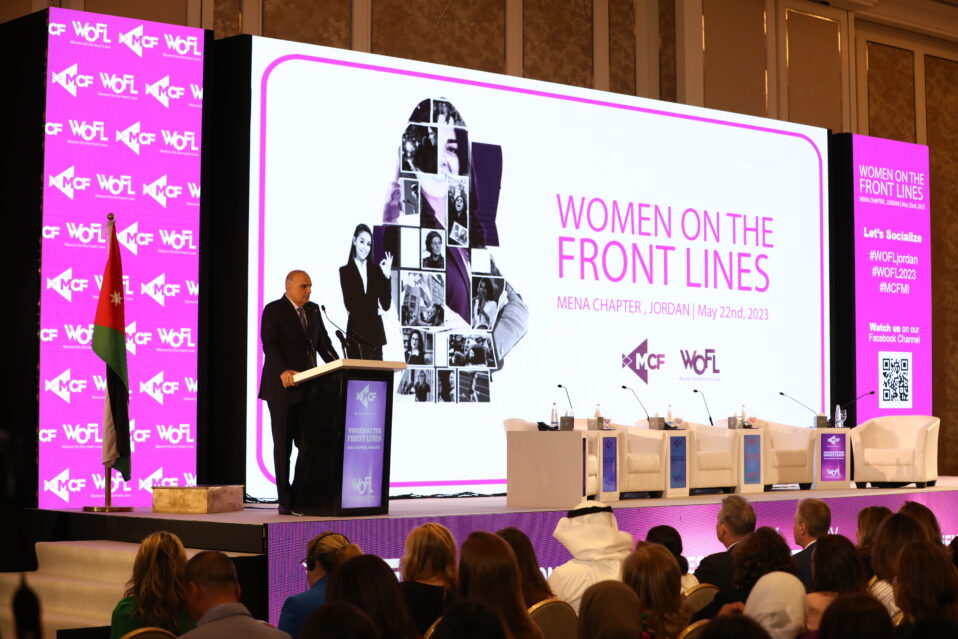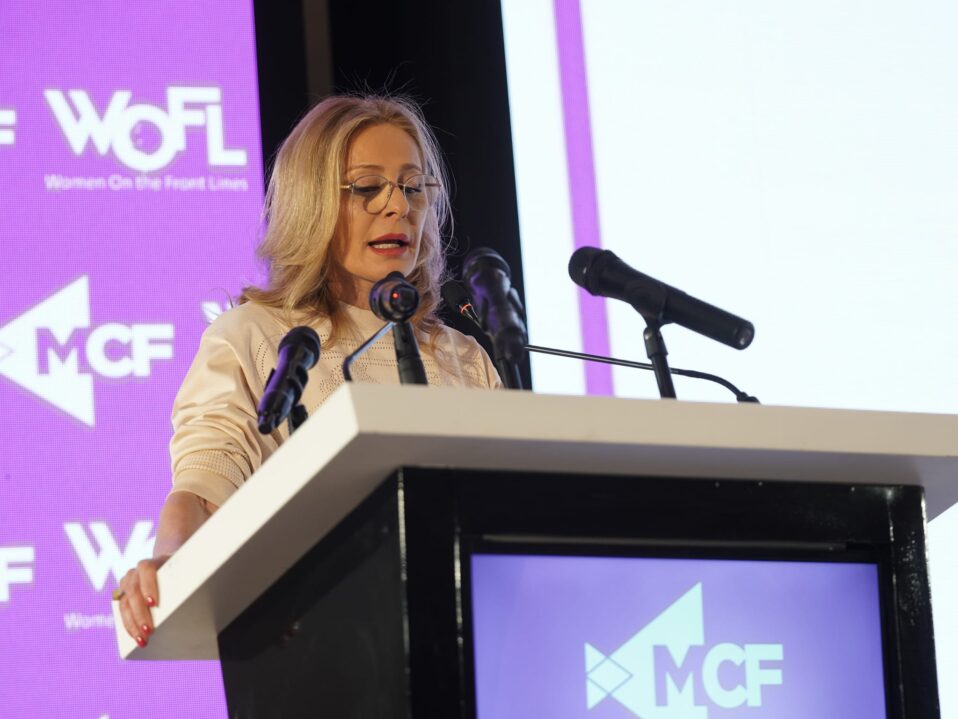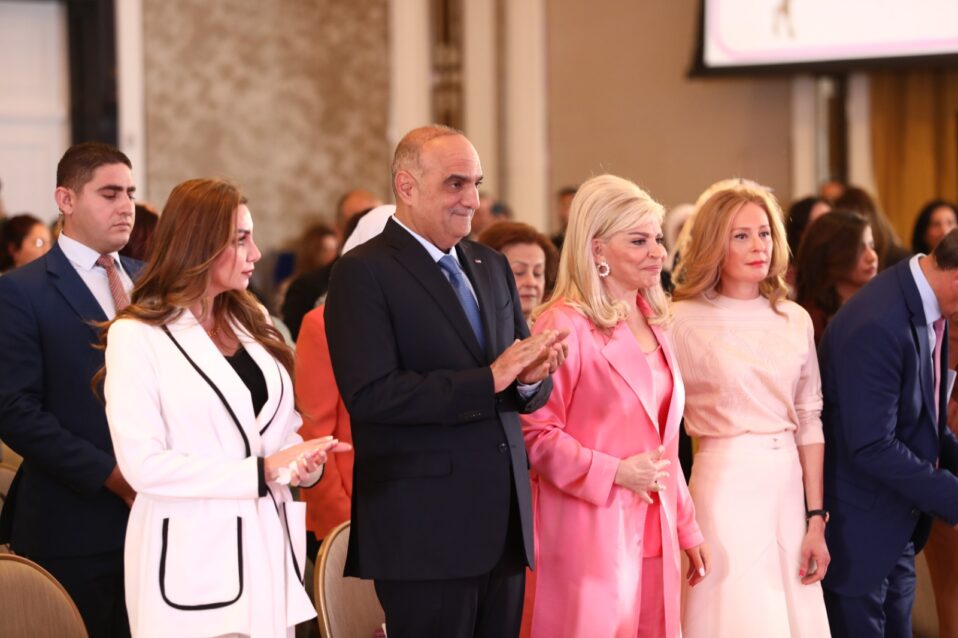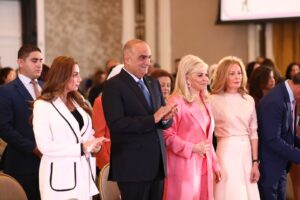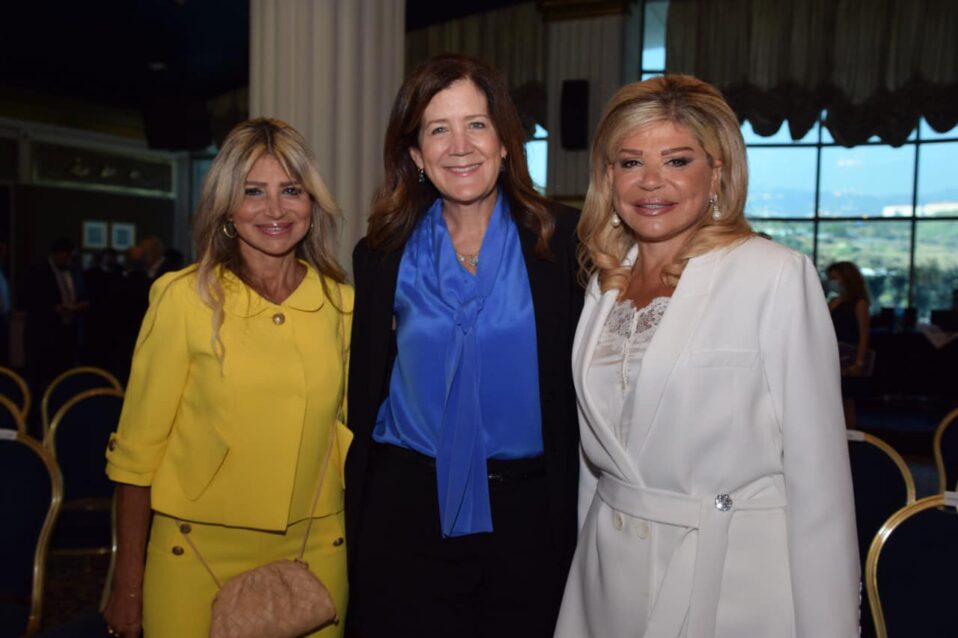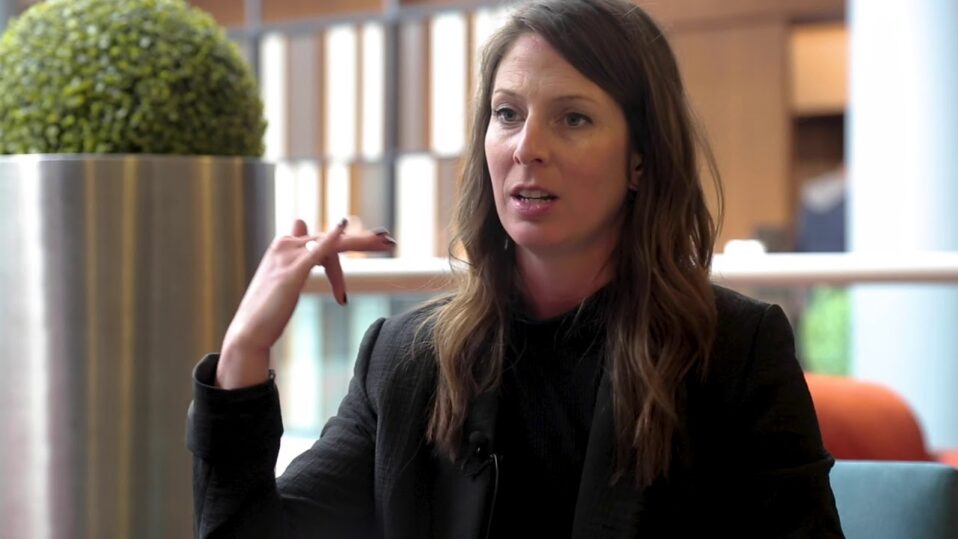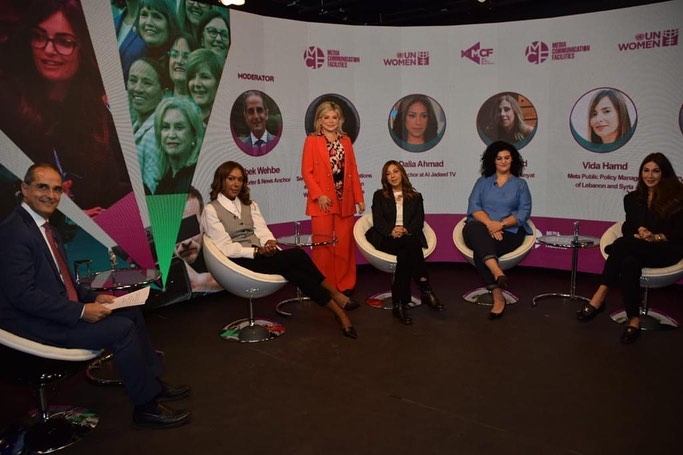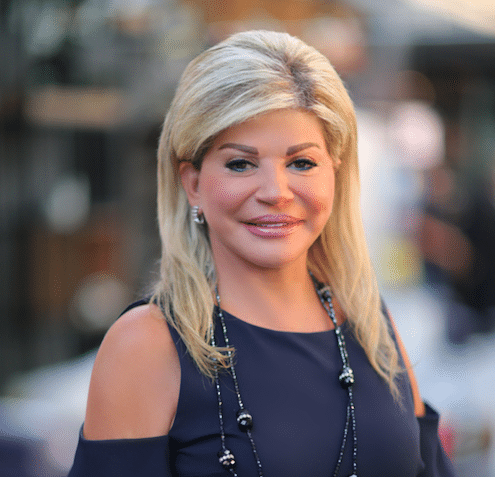PART I- THE FAILING STATE: A LENS AT THE CURRENT SITUATION IN LEBANON
Lebanon is going through an acute economic, financial, political and health crises that are endangering its population, plunging them into poverty and threatening their well-being. In this respect, National and International guest speakers in eleven panels and two fireside talks not only provided useful information about what went wrong in Lebanon but also recommended some policies in response to the multifaceted crisis, the country is facing. These policies can serve as an action plan to avoid the country’s free fall. In this respect, the present report summarizes the deliberations and provides the path to recovery.
WHAT WENT WRONG IN LEBANON?
Everything! According to the panelists, the crisis in Lebanon started as a debt crisis, became a banking crisis, turned into an economic one, and ended up as a social and humanitarian crisis. While the financial and economic crisis is likely to rank in the top 3 most severe crises episodes; the social impact of the crisis was catastrophic as more than half of the population is below the national poverty line. The crisis collapsed the most basic public services, mainly the electricity, sanitation, and education. The meltdown or “Depression” shacked all institutions, while it is currently putting unprecedented pressure on the sole institution that is left, as putting at risk the Lebanese armed forces (LAF).
The panels allowed us to discuss and examine the multi political, economic, financial, social, and humanitarian levels. According to the guest speakers, they revealed the following:
I- On the political level:
In all panels, the guest speakers agreed that the political situation that has led to complete chaos in managing the country, is a mix of internal and external factors.
A- The internal factors
The internal factors are related to anti-governance, corruption, religious, and sectarian power- sharing structure issues. According to Ms. Mona Yacoubian, Senior Advisor at USIP, these factors are linked to the fact that the Lebanese government not only lacks the political will, but that it completely refuses to undertake the necessary reforms that can prevent the country from going out of the multi-level crises.
The country was paralyzed since the Civil War to the post-civil war, to the Syrian hegemony, and to the post Syrian hegemony. To Mr. Paul Salem, President of the Middle East Institute, the state
lost its sovereignty in the late 1960s to the PLO during the Civil War and after the war to the Syrians and Hezbollah. It became a state without the basic building blocks of what a state should be. It had never been able to control its borders, its territory and its sovereignty, which helped the quick collapse in the last two years. As a matter of fact, when the war ended, a new government was forged to pave the way for sectarian warlords to become the country’s political leaders as argued by Ms. Nada Abdelsater, founder & managing Partner of Abdelsater – Abusamra & Associates. In short, the political class who created a tailored confessional system, based on consensus, broke the country.
The problem according to Ms. Maha Yahya, director of the Malcom H. Kerr Carnegie Middle East center, is that there was no accountability at the end of the Civil War; even worse, many of those who were accountable found themselves in positions of power. As for Mr. Amer Bisat, managing director & Head of sovereign and emerging Markets(alpha), Blackrock New York, the problem is that we are still moving on, as if nothing has happened, not even the port explosion, which is completely unacceptable.
For Ms. Rachel Dore-Weeks, Head of UN Women in Lebanon, it should be admitted that Lebanon is suffering from a governance crisis that is not accidental, but as a “man-made” one, as argued by Mr. Nasser Saidi, economist, and former Minister of Economy and Industry. Part of this governance crisis derives from a governance system built on exclusion, whereas the only real place where inclusion hit records is the confessional one.
While preaching for democracy and the rule by the people, the political power-sharing deal, called the Taif agreement, had been divided between the self-dealing elite and the patronage-based system. To Mr. Hussein El-Achi, attorney, and Secretary General at Minteshreen, this sharing system is called kleptocracy; more, vitocracy. It is based on institutional sabotage and appointments of public servants within the administration, covered by Hezbollah who is deeply implicated in corruption. Corruption, that caused the Port of Beirut explosion and the entry of ammonium nitrates, as argued by Mr. Saadeddine El-Khatib, Secretary of the Beirut Bar Association. The same corruption, that transformed the port into a piggy bank to finance the electoral campaigns of the ruling gang in Lebanon, under the hegemony of the armed Iran’s ally, the Hezbollah proxy, who is the main player in Lebanon, according to Mr. Riad Kobaissi, Head of the investigative Unit at Al Jadeed News. The Hezbollah who has the monopoly of force and the dramatic influence over the Lebanese Affairs, according to Mr. Paul Salem in panel 1. Whereas, since 2018, the Lebanese Armed Forces (LAF) was forbidden from recruiting fresh blood and new personnel, for three consecutive years, because of the budget law in 2018, despite what the LAF demonstrated in Fajer Al Jouroud; which weakened and degraded its ability to function, according to Brigadier General Ziad El Hachem, LAF former deputy chief of staff for planning.
B- The external factors
The external factors are mostly related to the influence of the constant interference from neighboring states such as Syria, Israel and Iran. For our guest speakers, they are also related to the nuclear agreement with Iran and the delisting of the Revolutionary Guard (the IRGC) as a terrorist organization. In panel 9, Mr. Sami Nader, economist, Middle Eastern affairs analyst, and former advisor to Lebanon’s Minister of labor, stressed that the delisting would have a direct impact on Lebanon and on the region because, in a way, it is legitimizing the Hezbollah, who is on the one side an integrated part of the Revolutionary Guard, and on the other, the party who is in charge and in control in Lebanon on behalf of Iran. A potential final agreement will inevitably reflect on the countries of the region, especially on geostrategic countries with a future which hinges on how conflicts between world powers play out. But, for Mr. Tarek Mitri, former government Minister and former director of the Issam Fares Institute on Public Policy and International Affairs at the American University of Beirut, who seems more optimistic, the effects of lifting some of the economic sanctions on Iran would be beneficial, as Iran will abandon its negative behavior and its destabilizing regional policy.
On their side, the West, Europe, and the United States, are doing their best to help Lebanon, its economic reform and recovery, and its Army to preserve the country’s stability. To Ms. Rana Abtar, Senior correspondent at El Sharq Awsat, there is a great reliance on the current French administration to solve the crisis. To Mr. Jospeh Bahout, director at the Issam Fares Institute for public policy and international affairs, and a former nonresident fellow in Carnegie’s Middle East Program”, the American policy in Syria has one title, the “Al-Tanf Crossing”, who controls it, and who controls the entry of Iranian weapons through Iraq and Syria into Lebanon. He is convinced that two different perspectives characterize the American strategic review. During Trump’s term, the strategy considered that if Lebanon collapses, it will take on its way the Hezbollah. While during the Biden administration, there was a different interpretation: Lebanon’s collapse can contribute to Hezbollah’s access to power. To Ms. Hanin Ghaddar, Friedmann fellow at the Washington Institute, the collapse has nothing to do with the US, but the US role and policy in the region can affect the country.
Mr. Sami Nader also argued that the turn of events in Ukraine had played a negative role on changing the conditions of the Iranian deal and on changing the position of one major stakeholder, which is Russia. He said and we quote: “Russia would not be happy to see this deal signed, despite all what is said. It won’t be happy to see Iranian oil flooding into the market. And this will weaken a very strong card that they have in that sense. Secondly, it defocuses U.S attention from the Middle East. So today, the priority for Washington is dealing with this crisis, then dealing with China’s rising power. Therefore, we’re seeing a growing concern among the traditional American allies, who are keeping a distance from Washington regarding this. So, it is a bit surprising in the diplomatic dynamic in the last days to see America’s traditional allies – Egypt, Saudi Arabia, Israel- getting together without America. This is because they have a common position when it
comes to the Iranian deal and the possible threat that it will not deal with strategic issues,but would be restricted to the nuclear ones”.
In parallel, while Mr. Tarek Mitri, former government Minister and former director of the Issam Fares Institute on public policy and international affairs at the AUB, stressed that the region is not a priority anymore for the American foreign policy in the post-withdrawal from Afghanistan; Mr. Andrew Tabler, Martin J. Gross fellow in the program on Arab politics at the Washington Institute, argued that there has been a de-prioritization of the Middle East in the American foreign policy. He said and we quote: ‘There has been de-prioritization of the Middle East in American foreign policy. But overall, in the Democratic party, there’s also been a de-prioritization of foreign policy in general, while foreign policy is the thing that’s weighing the most upon the Democratic party at this point. There’s a lot of concern about President Biden’s grip on power, and particularly the grip on a divided democratic party. And those divisions are being exacerbated by what we see in Afghanistan, and, in what we see in Ukraine.”
However, and according to Mr. Ohannes Geukjian, Chairperson of the political studies & public administration department at the American University of Beirut: “The American policy and the making of American foreign policy are not only in the hands of the President of the United States. There is a Congress. And in the midterm elections, the Democrats lost the large majority in it”.
There’s a lot of concern about the next step since the United States is not calming its allies in the region regarding the strategic role of the Vienna agreement and will not be able to, says Ms. Randa Slim- Senior fellow and director at the Middle East Institute and fellow of the SAIS foreign policy Institute at the Johns Hopkins University-, especially that many of the Biden’s Administration figures, who are holdovers from the Obama Administration, are not trusted by the region. The region politics are more and more driven by regional actors such as Russia, turkey, Israel, the GCC countries, who are driven by their own respective calculus, and their own decision-making processes. The problem for Lebanon is the maritime borders that is directly and indirectly related to the Vienna Talks, the negotiations with Israel and the possible deal with the IMF, because the major player on the ground is Hezbollah. And all the above problems are related to the relationship between Tehran and Washington.
It is to note here that the Gulf countries, used to always be alongside Lebanon, which is not currently the case, as stated by Mr. Paul Salem. But, as argued by Amb. (ret.) Gerald Feierstein – Senior Vice President and distinguished Senior fellow on U.S. diplomacy at MEI and former principal Deputy assistant secretary of State for Near Eastern Affairs between 2013 and 2016 under President Obama-, the Biden administration is working very closely with partners, such as France, Saudi Arabia, the GCC and others, to put together an international consensus on how to address economic and territorial integrity and sovereignty issues, and support urgently needed
macroeconomic and structural reforms in Lebanon.
Furthermore, according to Mr. Pierre Duquesne, who served since September 2020, as the French Ambassador in charge of coordinating international support to Lebanon and as the manager of the implementation of the CEDRE conference resolutions; the Ukraine war is not changing the nature of the crisis, but its degree and its gravity. It reinforced the structural weaknesses of the Lebanese economic model, the financial disorder, and the volatility of the currency, dependency to imports in general, and the extensive role of the imported fossil fuels for production of energy.
In a holistic approach, the political context through which the Lebanese crisis needs to be managed is almost non- existent, which led to the economic collapse.
II- On the Economic, Banking, financial level
Following the 1975 and 1990 civil war, successive governments piled up debt with little to show for their spending binge, resulting in a financial collapse that the World Bank has said could rank among the world’s worst recession in over 150 years. Since 2019, poverty has dramatically increased with the local currency plummeting to a fraction of its pre-crisis value. The result has been severe inflation and unemployment, putting the cost of basic living out of reach for thousands of people, and resulting in severe social and humanitarian needs. State bankruptcy led to a breakdown in public services. The service-oriented economy backboned by banks was paralyzed, while the country was driven to bankruptcy by a handful of sectarian politicians.
To Mr. Amer Bisat, managing director & Head of sovereign and emerging markets(alpha), Blackrock New York, the economic crisis is just as traumatic as any other political shock that the country has faced, including the civil war and the port explosion on the 4th of August 2020. The country is currently witnessing a massive loss of wealth and brain drain. To Ms. Hanin Ghaddar, Friedmann fellow at the Washington Institute, the country is collapsing due to internal reasons related to corruption. In short, the economic disaster is tied into impunity and not being able to address justice for the last thirty-one years. Right now, Lebanon is going through Whiplash, (as an analogy), in echo to Ms. Maha Yahya, Director of Malcom H. Kerr Carnegie Middle East Center. “The country who was once considered as a middle-income country is not even a very low, low, low income one anymore. The shock to the system is huge and it is changing the very identity of the country”, she said.
Mr. Nasser Saidi, economist and former Minister of Economy and Industry, cited the different economic grave “man-made” problems, the country is facing:
- The deliberate policy of avoiding reforms by the ruling elite.
- The rampant corruption that was enabled by a system who was supposed to be borrowing to rebuilding the country’s infrastructure but didn’t. Instead, it eroded trust, weakened the democracy, and further exacerbated the crisis.
- The bursting results of a Ponzi scheme, that is the responsibility of the central bank, who borrowed increasingly, to protect an overvalued Lebanese pound, which increased the debts,
increased the fiscal deficits, and the burden on the government due to higher and higher interest rates over time.
- The result of the overvalued exchange rate that run larger and larger current account deficits. The exchange rate depreciation that affected the minimum wage that is running at $28 per month and led to an acute inequality in the income distribution. The peg that hurt sensitive groups: while the judge is currently earning around 187 dollars per month, the university professor is earning around 156 dollars per month, and the soldier 54 dollars per month.
- The pegging of the exchange rate, a long-term policy pursued by the central bank, that allowed large consumption more than ability, leading to account deficits.
- The shutdown of the banks in October and November 2019 that was the catalyst for the outburst. An unusual step that shattered public trust in the banking system. As a result, there was a bank run, which resulted in the suspension of payments and the freezing of deposits, both in Lebanese pounds and later in dollars, leaving the depositors unable to retrieve their rapidly depreciating funds.
- The widespread corruption across ministries and industries most notably the ministry of energy which cost Lebanon more than $40 billion over the years (a substantial amount of the current debt).
- The government default by $1.2 billion Eurobond, in 2020, that was the first sovereign default for the country.
- But also, the vibrant results of the drug production and smuggling that is backed up by the Syrian regime and the Hezbollah, as described by Paul Salem in Panel 1.
All this led to:
- A massive decline of GDP since 2018, which is about 58 percent in real terms.
- The depreciation of the Lebanese pound by more than 85 percent.
- A three-digit inflation that is running at an annual rate of 240 percent.
- A food inflation that is running close to 480 percent.
- Large fiscal deficits, resulting in a large accumulation of debt, running at over a 175 percent of GDP.
A broader view to be taken into consideration is the impact of the dependency to imports in general, and the extensive role of the imported fossil fuels for production of energy. In panel 3, Mr. Amos Hochstein- who currently serves as the Special Envoy and coordinator for International Energy Affairs and leads the Bureau of Energy Resources (ENR) at the U.S. Department of State- pointed that the energy situation in Lebanon reached an acute level, as the country is having rolling blackouts. There are only few hours of electricity per day, while “no economy and no country can begin to stabilize its economy or even begin to think about growth without stabilizing the energy market or without beginning to see a pathway for growing the number of hours of electricity towards a full day for homes and small businesses, as well as hospitals, airport, healthcare, and
food and water. They all require electricity, so this is the basics. If we can’t do this, then we can’t do almost anything else”. According to Mr. Amos Hochstein, “energy is important to Lebanon, to its people but also to the United States who cares about Lebanon and its people. The country is drowning because it doesn’t have its own resources or significant distribution and production through renewable energy. Reason why it is imperative to hold appropriate negotiations with Israel to finish the demarcation of the southern border”.
III- On the Social level
According to the guest speakers, Lebanon is amid a rapidly escalating, unprecedented humanitarian crisis that is plunging the country deep into poverty and is threatening the population well-being, and their social welfare. The severe economic and financial crisis caused tremendous hardship for the people and the Syrian refugees, forcing an unprecedented number of them to rely on humanitarian assistance. The World Bank has described this crisis as one of the most severe globally since the mid-19th century. With the collapse of virtually all sectors of the economy, large segments of the people have lost their means of subsistence and access to essential services, including nutrition.
The joint Government-Central bank mismanagement led to severe social, educational, and health problems, whereas (i) 60% of the population is now considered poor while 70 to 80% of the population suffer from some sort of multi-dimensional poverty, as stressed by Ms. Maha Yahya.
- Unemployment is soaring and running at 50%. (iii) The country is witnessing massive migration, the loss of its human capital, and the loss of its brilliant talents, which is a crime as stressed by Mr. Amer Bisat.
Humanitarian assistance is provided under two response plans: The Lebanon Crisis Response Plan (LCRP) and the Emergency Response Plan (ERP). The first one existed for the past ten years. It is addressing the host communities and is limited to 256 districts. The ERP, which is complementing the LCRP, addresses only the needs of the Lebanese and the migrants. Up till now, the LCRP is not supporting the Lebanese with the same amount and the same level of assistance, support, and protection as the refugees, because it was not actually formulated and developed for that. Another problem, according to Ms. Najat Rochdi, UN Deputy Special Coordinator for Lebanon, UN Resident and Humanitarian Coordinator for Lebanon, is that up till now, Lebanon is considered as a middle-income country. “Reason why there is very little funding, less than12% for the ERP, which decreases the humanitarian assistance, as the host community did not have the same needs that we see today, for food security, for access to health services, or for education”, as stated by Ms. Rochdi.
On the food security: What’s happening in Russia and Ukraine, is going to affect not only the security and the stability throughout the Middle East, but mainly the global supply of wheat off
the market, said Amb. (ret.) Gerald Feierstein, Senior Vice President, and distinguished Senior Fellow on U.S. diplomacy at MEI. The problem is that we are starting to see malnutrition and non- access to water among Lebanese children, which is really the first time ever, as argued by Ms. Rochdi.
On the Health care sector: Lebanon’s healthcare system is disintegrating as the country is grappling with one of the worst economic crises in the world. In front of the shortages of medications, diesel and fuel, the authorities need to act immediately to avoid even worse consequences. The sector is suffering from harsh political interference preventing part of the population from adequate healthcare. MP. Ghassan Hasbani, former Deputy Prime Minister, and Former Minister of Health, stressed that the funds that were provided to improve the primary health care centers by the World Bank were halted by the successive Hezbollah Ministers because of a disagreement on transparency of distribution of funds through the Ministry of Health. Which is not the case.
On the education sector: Compounded crises have placed Lebanon’s education sector under severe strain. Amid internet dysfunction, power outages, transportation costs, covid-19 concerns and salary decrease, education became largely inefficient and inequitable. The increase in poverty rates led to an exodus of students from private to public schools. The lack of a clear strategy became a constant source of anxiety for both, the parents, and the unlucky generation.
On the gender equality: Some numbers should be introduced to shed light on another social issue related to gender gap and discrimination. For even though women were granted the right to vote back in 1953 in Lebanon, Ambassador Dorothy Shea stressed that the world economic Forum data ranked Lebanon 132nd out of 156 countries on the Global Gender Gap Index, 112 out of 155 countries worldwide in political empowerment, and 182 out of 190 with regards to women’s participation in Parliament as of April 2021. These numbers give a sense of the gravity of what ordinary Lebanese have been up against, as argued by the U.S. Ambassador. Well before the economic crisis compounded by the global pandemic of Covid, women and girls were already at a situation of disadvantage. The Beirut Port explosion of August 2020 had more severe impact on them, pushing a high percentage of girls to dropping out of school and to early childhood marriage. The barriers for women persist in the Lebanese society. They go from technical, to financial, to legal, to mental. To Ms. Loredana Teodorescu, Head of European and International Affairs at Istituto Luigi Sturzo, & President of Women in International Security (WISS) Italy, they are mostly linked to the mindset of the patriarchal mentality, culture, and biases, that will take time to change. They are also related to the political will, that exclude and prevent women from expressing their full potential. To Ms. May Chidiac, President of May Chidiac Foundation- Media Institute and Former Minister, the male-dominated power prevents for instance, most of the 128 Lebanese parliamentarians from voting for a law or a quota that can lead to excluding themselves and leaving their space for women. This simple equation won’t work, because even though, some political parties make formal commitments to gender equality, they fall short of living them out, she said.
PART II- RECOMMENDED POLICIES
The economy contraction, the plummeting purchase power, the decline in well-being and the deterioration in living conditions in Lebanon have exacerbated national deficiencies and institutional weaknesses. In such an environment, there is a growing need for policy responses that can lower the obstacles. The country needs to urgently embark on a comprehensive reform agenda. The second part of the present report provides evidence-based solutions founded on the diagnostic of the different key challenges detected in all eleven panels and the two fireside talks. It proposes policy reform recommendations over the short, medium to long-terms.
In this respect, the second part of the report discusses seven Key interconnected strategic areas: 1) The rule of Law; 2) The course of the Parliamentary Elections; 3) The LAF and the Borders security; 4) The Economic and Financial Reforms; 5) The Energy Crisis; 6) The International Humanitarian aids; and 7) Women Mediation role in peace processes.
These recommendations for action tackle key challenges. Embracing and implementing them can benefit all citizens in Lebanon aiming for a more sustainable and better future. To reinvent the future, there is a strong need to focus on reducing the significant political and economic unrest that is exacerbating social polarization, undermining the national security, and eroding trust in government leaders. But, although trust in government has fallen, yet it is the government itself who must bear the political responsibility to solve the fundamental problems, achieve safety, and ensure democratic governance of citizen security. In this sense, our guest speakers were counting on the parliamentary elections 2022 to enhance accountability, encourage adherence of rules and regulations and ensure that the security activities are in line with democratic best practices.
- The rule of Law
Proven arbitrary after the Port of Beirut explosion, the rule of Law is to become effective and durable. Its four universal principles constitute the only framework that can build a country: accountability, just Law, open government, and accessible and impartial Law. If implemented, these pillars guarantee a reformed judiciary. The rest will follow.
Panel 3 stressed on the weak rule of Law and lack of good governance that are the core reasons behind the Port of Beirut explosion. To Mr. Riad Kobeissi, Aljadeed TV investigative journalist and one of the winners of the U.S. State Department 2021 International Anti- Corruption Champions Award, corruption is infiltrated into the customs, the administration of the Port of Beirut and the department of transportation. The Special Judge was notified 6 times, about the mafia logic who put a Captagon plant, next to 2,700 tons of ammonium, next to 30,000 tons of fireworks; yet no action was taken; leading the mixture to a massive “nuclear bomb”.
According to Mr. Saadeddine El-Khatib, Secretary of the Beirut Bar Association, the case of the Beirut port explosion was referred to the Higher Judicial Council who appointed two executive judges to lead the investigation. When Judge Tarek Bitar took the file, he led a domestic investigation, filed a lawsuit against some people he found guilty, and issued a stop warrant against others. Political interference coupled with long-standing failings of the judicial system made a credible and impartial investigation impossible. Obstructions, requests for response and requests for transfer of claim and the state-sharing requests delayed the investigation, in a country where the political sphere intervenes in everything, on a daily basis. To note that the forensic investigator never had an office, any assistance, large teamwork, or the financial capabilities or even the technical ones to report on how the crime happened and who brought the “Bomb”, in echo to Ms. Nada Abdelsater, founder & managing partner of Abdelsater – Abusamra & Associates – ASAS LAW.
To Mr. Ibrahim Najjar, Professor and Former Minister of Justice, according to the Lebanese law, investigator Tarek Bitar was required to release a presumptive decision at once, proceed with the investigation, take another partial decision, and then continue the investigation. He couldn’t and he won’t be able to, said Mr. Najjar, because the history of the judicial council had always been empty. Despite all gathered information, the judicial council had never been able to issue any rulings regarding, for instance, the assassination of President Bashir Gemayel, or elucidate the case of Sayyid Musa al-Sadr, and reach the truth. In this respect, there is an urgent need to implement the rule of Law to ensure the reign of a culture of respect for the state and the institutions. It will hence be mandatory:
- To develop the Code of Criminal law Procedures in Lebanon, reconsider judicial formations, and reconsider how to release them, how to protect judges from politicians and how to re- educate public life in Lebanon.
- To reform the Lebanese civil and administrative judiciaries. Without an independent judiciary, the country cannot escape the socioeconomic “Hell” in which it has been thrown in, by some political ruling elite.
- To protect public funds, hold corrupt officials to account, and preserve citizens’ rights.
- To go back to Article 20 of the Lebanese Constitution that guarantees that the judiciary is founded as an independent entity, subject only to the law.
- To safeguard the independence of both the judiciary as an institution and of judges individually, judicial councils must be independent. Judges should be chosen by their peers and not by politicians, to ensuring that such councils will be acting in an objective, fair and independent manner.
- Furthermore, foreign policies should help Lebanon. The US policy already considers the Hezbollah as a terrorist organization, but more penalties should be imposed on the party leaders and supporters, in echo to Ms. Rana Abtar, Senior correspondent of Sharq Awsat. “The Biden administration should follow the Trump administration and counter more foreign policies,
related to corruption. After the Beirut explosion, sanctions should punish not only the Hezbollah, but also all corrupt Lebanese leaders.”
Moreover, for Mr. Saadeddine El-Khatib Khatib, Secretary of the Beirut Bar Association, the immunities of the deputies are not absolute. Like lawyers or employees, the deputy can be sued and pursued. Articles 60 and 70 of the constitution should be therefore made effective. Article 60 gives an exception only to the President of the Republic, and not to the Prime Minister or to the Ministers, while article 70 of the constitution doeـs not limit the trial of Ministers and Heads of government to the Supreme Council. It is possible for them to be tried before an ordinary court.
2- The course of the Parliamentary Elections
Lebanon’s economic depression is “orchestrated by elite”, says World Bank. Change is needed to alter the governance model and practices in the country. Given Lebanon’s ongoing economic and social crises, is there any hope for change after the 2022 parliamentary elections?
A lot have been said in the panels concerning the parliamentary elections and the expected changes. To Mr. Hussein El-Achi, Attorney & Secretary General of Minteshreen, for instance, actual change starts by changing the social contract. To Ms. Maha Yahya, director of Malcom H. Kerr Carnegie Middle East Center, the notion that change can happen through one set of elections is unlikely to happen.” It can happen, if there’s a military coup, but we are not going to have one’, she said. “Instead, a lot of different dynamics come into play in a country that is totally different from the US, where only two political parties run off against each other”. To Mr. Mohammad Chamseddine, researcher at International Company for information, the Lebanese electoral Law itself is against change. It divides the country to 15 uncomprehend districts, with no criterion.
According to Mr. Ziyad Baroud, Lawyer and managing partner at HBDT Law Firm and former Minister of Interior and Municipalities, we should not look at the consensus in a negative sense, and we should not accept the charter with the only principle of unanimity. “For example, all issues require two-thirds of the Council of Ministers. But the Charter in its limits says that when you vote by two-thirds, the decision to which everyone must be subject to, must be followed. I think that in Lebanon there are things like the paragraph in the Constitution that talks about coexistence that should not be subject to amendment. We could invent means to protect the meaning and message of Lebanon and at the same time make things easier for people. Citizens are the ones who pay a very high price today because of the economic and financial policies that have brought us to what we are experiencing”.
To Mr. Sam Menassa, writer and former executive director at La Maison Du Futur, sectarianism is still soaring, while the country is under guardianship authority and under occupation. He argued “that after the port explosion, and even though, French President Emmanuel Macron hold responsible the Lebanese people for electing the current members of the parliament”; Mr.
Menassa does not expect any big changes with the new elections, but the creation of a small opposition which will be even more internally fragmented. In a failed state scenario, all panelists, in panel 7, agreed that there is a need for:
- Engaged citizens who should participate in the political process, protest the injustices, organize, and struggle and do not leave politics to the same politicians.
- For a broader political culture that calls for change through the elections.
- All parties should get involved and all voices should be heard. When former Prime Minister, Mr. Saad Hariri decided to withdraw from politics, he sent the wrong message to the Sunni community asking them not to get involved in the elections. Abstaining from voting leads to pay a huge price, says Mr. Joseph Gebeily, President of the Lebanese Information Center in the U.S.
- To get into the habit of having public debates around policy choices, around a future vision for Lebanon, and around groups running for the elections based on programs, and not because of their belonging to a sectarian affiliation, or to political hereditary, or other.
- To improve governance, representation, and policies against Hezbollah’s heavily armed backed by Iran, as Mr. Paul Salem, President of Middle East Institute proposed.
- To reach out the new generations through social media platforms, such as WhatsApp, or Facebook, as suggested by Mr. Hussein El-Achi, attorney & the Secretary General of Minteshreen.
- To stop the hate speech: To Ms. Najat Rochdi, UN Resident and Humanitarian Coordinator for Lebanon, the hate speech is growing in both the social and the normal media. It should end if we want to hold together such a fragmented and conflicting society and if we want for the elections to lead to something constructive and positive.
- To install a better legal political environment, where Law dictates the structure, boundaries, rules, and processes, within which governmental action should take place. According to MP Georges Okais, the righteous, the competent, the brave, and the clean should not withdraw from the political work.
- To keep the democratic face of Lebanon and preserve the constitutional democratic ” To unite the transformative power, which is a combination of several heterogenous groups to get stronger.
- For the elections to be transparent, and for the freedom of the voter to be guaranteed.
According to the constitution, three articles 7, 11, and 21, ensure equivalence and non-difference between citizens. But the LAF are restricted and forbidden to vote, unlike the American soldiers who can, 48 hours before the day of the elections. Hence, Brigadier General (Ret) Ziad Elhachem suggested that those who guarantee the elections should be allowed to vote before the civilians.
3- The LAF and the Borders security
The Lebanese army is very central to US policy in Lebanon. It is the only source of influence for the US in Lebanon since Bush’s term, as the Lebanese Armed Forces (LAF) has managed to remain the only credible National Security actor. It is a cross-sectarian organization that enjoys broad popular support all throughout the country, north to south, and east to west. It is the sole legitimate defense provider in the country, and the sole remained institution in the country, states Colonel Robert Meine, U.S. Army Senior Defense Official / Defense Attaché.
A Key component of the US Policy towards Lebanon: the security assistance for the Lebanese Armed Forces (LAF).
A- As for the LAF
Although funding the LAF, during Mr. David Schenker’s tenure, had been controversial, because of the organization’s collusion with and penetration by Hezbollah, such support is nowadays a cornerstone of U.S. policy in Lebanon. The unstable balance between the LAF and Hezbollah showed that there will be not enough room for two preeminent military institutions. Therefore, Washington had reconsidered supporting the Lebanese army, yet the pressure is still there, argued Mr. Joseph Bahout, Director at Issam Fares Institute for Public Policy, and International Affairs and a former nonresident fellow in Carnegie’s Middle East Program. To Amb. (ret.) Gerald Feierstein, Senior Vice President of the MEI, the United States is keen to help strengthening the LAF to help them carry out their mission of safeguarding Lebanese sovereignty and territorial integrity. For Colonel Robert Meine, U.S. Army Senior Defense Official / Defense Attaché, the US is supporting the LAF in their different several strategic, operational, and tactical needs, so that they do not collapse socially and economically. “But this does not mean a militarily support” as per Colonel Meine. A five-year security assistance roadmap and a capabilities development plan were developed to address the LAF strategic needs. Operations were sustained as needs such as fuel, food for soldiers, spare parts, and other were delivered to the LAF. 67 million dollars were offered to support the soldiers within the current economic crisis, to buy time for the Lebanese government to address needed reforms and to proceed with the IMF loan. 80% of these aids come from the US, while other subventions are provided by other countries including Britain and France. But what about the borders?
B- As for the Borders security Two Bottlenecks were found:
The first: After US-imposed Caesar Act, Hezbollah continues its operations to smuggle items, including those subsidized by the Central Bank, such as food, fuel, and medicine, into Syria via unofficial crossings it controls, even as the Lebanese people were going hungry. The LAF units along the land border in Syria are deploying some security measures but are still unwilling to stop the smuggling.
The Second: Other factors are at play between Lebanon and Israel, who have no agreed land border. The current demarcation is the “Blue Line” system, drawn by the UN in 2000, after Israel withdrawal from south Lebanon, to stop Hezbollah’s attacks against it.
The UNIFIL keeps in this course a strong relationship with the state of authority, as stated by Major General Stefano Del Col, UNIFIL Head of Mission and Force Commander before the end of his mission in Lebanon. It monitors what is happening in the south of Lebanon along to the blue line and reports any violations that occur. Moreover, the UNIFIL helps citizens and Lebanese farmers to cross the blue line and harvest the olive trees, that are, technically speaking, in the South part of the blue line; while it creates the stability for others to work on the maritime decisions. Therefore, there is a need to increase the dialogue between Lebanon and Israel to resolve the problems, including the problem of the maritime borders. According to Major General Stefano Del Col, citizens from both side of the blue line want to live in a peaceful way.
The question is: what is the size of Hezbollah which the United States is ready to accept? Especially that the Hezbollah matters to Washington, since it is an Iran proxy that poses threats to Israel.
According to the panelists, the negotiations’ objective that are taking place in Vienna, is to reconstitute the Joint Comprehensive Plan of Action (JCPOA), which is a very structured and limited agreement focused on Iran’s nuclear program. The success of the negotiations can give hope to Hezbollah to extend its influence and destabilize Lebanon’s security; but the Biden administration has adopted a sort of dual policies: one for the country, and another for Hezbollah. While the US is currently trying to rescue Lebanon and its army from failure, undercutting Hezbollah is its top priority. It has repeatedly sanctioned the Hezbollah and deprive it from its resources. The problem though is about the political class in Lebanon. in 2005, the Bush Administration compelled the Assad regime to abandon Lebanon all together. And today they’re back politically, through the Iran proxy.
In this respect, we quote Mr. Joel Rayburn, fellow at New America Foundation and visiting fellow at Hoover Institution, as he said that, “when Secretary Pompeo made his visit to Beirut in the spring of 2019, he went with an ultimatum to the Lebanese political class which was saying, listen, you guys must make a choice. You can’t continue to be political enablers of Hezbollah, to be in political alliances with Hezbollah, and then expect to be treated distinctly from Hezbollah when it comes to U.S sanctions and overall Quds Force. You can’t be friends with us and with Hezbollah when there’s this escalating confrontation between the Quds Force and Hezbollah on the one side, and
the U.S and its allies on the other, in the region. And I would say that the Lebanese political class didn’t respond to that ultimatum. And then six months later the financial meltdown happened. Essentially, when Secretary Pompeo had the lead for this file in Trump’s administration, he was saying that if you don’t dissociate yourself from Hezbollah politically, then we’re going to treat you as an enabler of Hezbollah and we’re going to start sanctioning you”.
In this context, Mr. Joseph Gebeily, President of the Lebanese Information Center in the U.S., said and we quote: “It is extremely urgent for all military weapons to be confined to the Lebanese state, to rebuild the Army, and to send appropriate messages to the civilians and to our citizens that the LAF are defending them”. He also said that “since the Bush administration, the US decided to help securing Lebanon’s independence, sovereignty, territorial integrity, and to work on the
implementation of the security council resolutions 1559, 1680, and 1701, to disband all militias, control borders with Syria, and expand State Authority“.
Mr. Robert Danin, Principal at Georgetown global strategies, and White House National Security Council, also expressed that “it is extremely important for the Lebanese people to understand that, in these challenging times, if the United States seeks to support them with emergency preparedness, they also need to help themselves through conducting necessary reforms.“
The problem is that for the last 40 years, not one government proposed a National Security strategy, upon Brigadier General (Ret) Ziad Elhachem; while there is an urgent need for the Minister of Defense to write a defense strategy, and for the LAF to write a military strategy, as the challenges are many. They go from the human resources (80000 troops, including officers, NCOs, soldiers, and their families), to the health care facilities, to training the personnel, to logistics, to assistance and sponsoring, according to the LAF Doctrine. For Colonel Robert Meine, U.S. Army Senior Defense Official / Defense Attaché, even though the new trend is less human factor, more technology, computers, and unmanned drones; the US keeps on recruiting, educating, training, cultivating, and retaining the relevant personnel to strengthening the LAF. The main characteristics of the LAF, being strong leadership and selfless personnel, willingness to make sacrifices and decisive actions to better the organization.
4- The Economic, banking and Financial Reforms
In John Maynard Keynes terms, Lebanese people still view their wealth and income in nominal dollar terms, based on false prosperity, rather than recognizing their real value, adjusted for inflation, in reference to Pierre Duquesne, Ambassador in charge of coordinating international support to Lebanon, CEDRE.
The crisis in Lebanon is a mix of a financial, quality, solvability and of a governance crisis. The untenable situation is multi-dimensional and complicated and is an accumulation of a lot of
mistakes: the unproductive economy, the dysfunctional electricity system, and the bursting of the excessive government borrowing, of the Ponzi scheme, of the destructive bubble of consumption and the massive and endemic corruption. The country is completely cut off from the rest of the world. There is drainage on all resources including reserves leading to a complete collapse, in a country that largely depends on imports. Everything is informal. The private sector is just providing basic services based on an informal economy and a cash-based economy.
The banking system lies at the core of the country’s economic, banking, and financial crisis. The bank deposits decreased (at the time of the panels) to $28 billion in reserves, including gold, with a banks’ balance sheets hole surpassing $83 billion. Nevertheless, the deliberate denial continues to be creating long-lasting scars on both the economy and the society. Therefore, and as proposed by the guest speakers in panel 8, Mr. Pierre Duquesne, Ambassador in charge of coordinating international support to Lebanon, CEDRE; Mr. Nasser Saidi, Economist and Former Minister of Economy and Industry; Mr. Camille Abou Sleiman, Former Minister of Labor, Capital markets specialist; MP Ghassan Hasbani, Member of the Lebanese Parliament, Former Deputy Prime Minister, Former Minister of Health; and Mr. Saad Sabrah, Country Head/ Senior Country Officer, IFC; there is an urgent need:
- For all stakeholders to be aware of the value of the “pressing time”.
- To stop spending the rest of the mandatory reserves for electoral purposes.
- To work on a clear collaborative National political and economic plan that includes all stakeholders, the classical political elite, the economy elite, the think tankers, the new forces, and the whole population. The plan is meant to support the pressing needs of the people and to confront the challenges affecting their livelihoods.
- To restructure the banking system, the Central Bank and the BDL, to rebuild the economy and get trust back. The restructuring can help the banking system regain its liquidity and solvency, operate with the international financing system, and preserve its relations with the correspondent banks. Around 50% of the banks need to be liquidated while mergers and acquisitions between banks should be designed. After decreasing the number of banks, and lifting banking secrecy, it would be of interest to follow the example of the Swiss National Bank, described as a joint-stock company, and convert the remaining reserves, into bank shares, known as “bail-in”. Voting shares will be then held by the public shareholders. The bottleneck though is that the laws concerning the bankruptcy and insolvency systems in Lebanon, are too old and not quite adapted to the situation. Laws need to get modernized. Not to forget, the obligation under the law, for the state, to recapitalize the Central Bank.
- To restructure the debt to achieve short-term fiscal space, meet all the country’s current and future payment obligations and medium-term debt sustainability.
- To implement a clear change monetary policy: (i) to abandon the fixed rate. (ii) to unify the exchange rates and move towards flexible rates. (iii) to control inflation (iv) to stop financing government and (v) to stop subsidies.
- To implement a clear accountability and to start a forensic audit. To note that there are three interlinked balance sheets, resulting from the crisis: the government’s balance sheet, the banks, and the BDL’s balance sheet. More, to acknowledge the losses and give another chance to the Lazard Freres.
- To implement a capital control law, to limit the risk of losing having attachments with the correspondent banks. Plus, all transferred capitals after October 19 should be brought back to the country, except those for medical emergency, students abroad and other similar exceptions.
- To get an agreement, a kind of a contractual obligation, on the government and Parliament to do the reforms with the IMF before the elections; despite the negative experience with the implementation of the CEDRE program, for at least four reasons: (i) to regain confidence from all actors internationally, but also from the Lebanese people; (ii) to deliver financial and technical assistance to the country; (iii) to ensure a full fledge framework for reforms, linking them together; and (iv) because this would help get more funding .
- And to fight corruption. As stated by Mr. Joseph Gebeily, President of the Lebanese Information Center in the U.S., the American Treasury had always stressed, during their visits to Lebanon, the need to fight corruption, and the need to go after the accounts of the politically exposed persons.
To sum up, the country urgently needs a political rescue plan that will eventually lead to the economic rescue plan.
5- The Energy Crisis
A well-structured and swift reform of the electricity sector is critical to address the long-standing and compounding challenges of the electricity sector which is at the center of Lebanon’s economic and social recovery.
According to Mr. Amos Hochstein, Special Envoy, Bureau of Energy Resources, there are two ways, on the short-term, to solve the energy crisis in Lebanon: by bringing gas from Egypt, and by bringing electricity from Jordan. The agreement to pump Egyptian natural gas to Lebanon through Jordan and Syria, is expected to help Lebanon boost its production in electricity and alleviate the impact of the crisis that paralyzed the country. It includes the provision of Lebanon with electric power from Jordan through the Syrian network at 150 Mega Watt for six hours from midnight till six in the morning or the rest of the day for 18 hours and at 250 Mega Watts. Mr. Walid Fayad, Lebanese Minister of Energy and Water, nevertheless, added a third way, since Iraq agreed to supply Lebanon with the fuel it needs, 400 to 500 megawatts, which constitutes the least amount possible to be able to maintain only basic facilities such as the harbor, airport, and hospitals.
The benefits of the first agreement are related, to Mr. Saleh Ali Hamed Al-Kharabsheh, Jordanian Minister of Energy & Mineral Resources, to its symbolism and messaging. First, it will help
Lebanon open new areas of cooperation between the brotherly countries. Second, the arrangement with the World Bank will become possible. However, even though Jordan and Syria transport Network became ready, these benefits will not include the normalization with Syria, as stressed by Mr. Amos Hochstein, since the Caesar Act sanctions will continue to be in place.
Moreover, mandatory actions should be taken:
- To solve the energy crisis: there is an urgent need to explore the oil and gas resources on the medium-term. And there is a need to increase the share of renewables under a national plan on the long-term, as argued by both, Mr. Amos Hochstein, and Mr. Pierre Duquesne.
- To keep the negotiations going on with Israel: The two sides should agree on a deal, but the United States does not need to be a part of that necessarily. The gaps should be narrowed to reach a resolution, so that Lebanon can get onto the business of exploration, get foreign direct investment in the country, boost the economic activity, and ultimately have its own two types of resources: the gas that can come from the ocean, and the sun and the wind as renewables.
“In 2016, there was a deal on the table between Lebanon and Israel. Had it been implemented then, or reached then, there would have been exploration, and today Lebanon would have been producing gas. The country would have had 24 hours of electricity. Israel, Jordan, and Egypt pay their domestic around 4-5 dollars, while Europe is paying 30$, almost times 10. That could have been Lebanon’s price”; to quote Mr. Amos Hochstein, Special Envoy, Bureau of Energy Resources.
To Mr. Hochstein, Lebanon should be willing to take the right steps in the energy sector, on the economic level, to do necessary reforms, and to build long lasting foundations. If done, then the
U.S. will be supportive, if not, it wouldn’t be the crisis that the US needs to solve, can solve, or should solve. On its part, the international community, and the tax bearers around the world, who are represented through the World Bank, are asking for reforms to finance the agreements. To expect a final approval of the World Bank, accounts of the institution electricity should be transparent, and tenders should be launched.
6- The International Humanitarian aids
The impact of the economic and financial crisis is extremely devastating. Lebanese people are unwilling to afford basic expenses like food, health, electricity, water, internet, fuel, and education. A fish or a stick to catch the fish?
More pressure on the political decision-makers is required to get the political and economic reforms in place, but the problem right now is on how to ensure humanitarian aids, stressed MP Ghassan Hasbani, in panel 2. But to Mr. Ralph Tarraf, Ambassador of the European Union to
Lebanon, who has another opinion on the subject; it is now the right time to invest in small enterprises and medium enterprises (SMEs), to promote entrepreneurship, enhance employment, and reinitiate an economic cycle to empower people and help them not to fall into the mindset of a humanitarian assistance, because Lebanon is not at a Somalia or a Yemen level.
But with the devaluation of the currency, the economic stumbling, and the complete irresponsibility of the political decision-makers and as we are quickly approaching at an exponential speed towards a situation of famine and death, there is an urgent need to rush into the aid of the people directly, through aid agencies and NGOs, and other non-governmental entities, proposed MP. Ghassan Hasbani. Basic food supplies and medication need to be delivered directly to people and not through public channels and governments. Cash support and digital money can be placed in action in an audited and transparent manner and go directly to people in need the same way, as the Syrian refugees are getting them from UNHCR.
“It is feasible, said Ms. Najat Rochdi, UN Resident and Humanitarian Coordinator for Lebanon, aside one challenge, which is the challenge of coordination”. It takes everybody’s Goodwill, the willingness to be transparent, and to be accountable, to lead such humanitarian actions.
7- Women Mediation role in peace processes.
Recognizing women’s equal political participation and presentation, is key to achieve sustainable development. It is about time to hear the voice of Women.
Evidence shows that inclusion of women can affect the peace process. In this regard, there is a need to increase women’s participation in the political scene. To build the foundations of a new Lebanon, a clear normative framework and clear commitments from the Security Council and other forms state are calling to support women’s leadership and women’s engagement in Lebanon amidst these moments of crisis, according to Ms. Rachel Dore-Weeks, Head of UN Women in Lebanon.
The form of leadership that most women have built so far has been around compromise, negotiation and listening. There is a need for a new equation to address urgent issues, and think through the problems the country is facing, which is the good old-fashioned politics of bringing in new voices and new leadership into Lebanon’s governance framework: The voice of women. In this context, there is an urgent need:
- For a robust legal and normative framework, many international legal instruments, national and international policy commitments also best practices to support women inclusion in Lebanon, according to Ms. Loredana Teodorescu, Head of European and International Affairs at Istituto Luigi Sturzo and President of the WIIS. But to Ms. May Chidiac, the Former Minister
and President of MCF- Media Institute, it is not a question of Laws and the issue of new resolutions, but rather the problem is about the implementation of National Action Plans that seek women’s inclusion.
- To change the mindset and the perspectives on women’s role in the peace-making community, for Ms. Loredana Teodorescu.
- To essentializing woman’s role and skills, and to bring women to dialogue and political governance and peacebuilding. Women should be perceived as political actors.
- To eliminate all forms of discrimination against women, the youth, and all the marginalized groups, for Ms. Rachel Dore-Weeks.
- To facilitate women’s capacity-building, participation, and inclusion in political life.
- To encourage awareness on the civic and political rights of persons with disabilities and empower them. The appointment of Ms. Sara Minkara, as Special Advisor on International Disability Rights from the U.S. Department of State, enhances the value-based human rights and demonstrates that women with disabilities can play a transformative role in leadership and individual empowerment.
In this respect, and according to Ambassador Dorothy Shea, the U.S. Embassy developed a variety of programs to build women’s leadership skills and critical thinking skills to help them find solutions to their problems. In education, the USAID scholars, is supporting multiple scholarships, of which 58% of the scholars are women. In partnership with Lebanese Civil Society Institutions, who are part of the fabric of your Society, the US embassy is offering a program called teaching women English and Entrepreneurship. USAID has also recently launched the Lebanese women Angel fund, the first of its kind in this country and in the region, to encourage female entrepreneurs. Moreover, the USAID is implementing a 1.5 million U.S. Dollars initiative through the women’s global development prosperity program to expand women’s presence in the labor force more generally. The first cohort of 62 entrepreneurs completed their training not long time ago. Another program is the Tech program that works to promote STEAM, the science, technology, engineering, arts, and Mathematics line of education and work among girls and women.
It is therefore, of added value, to quote Ambassador Shea, who said that: “Women’s contribution in leadership and decision-making should be the norm, not the exception. So let us start with education… and prepare the ground up, maybe in school elections for example, then in municipality elections, and so on and so forth. There will be barriers, some technical, some financial, and others mental …. So, I’m looking at what we can be doing as the U.S. Embassy to develop programs, for example, that encourage the participation of women and girls in a variety of programs to building leadership and critical thinking skills. Because that’s what we prize in our political leaders. We’ve all got problems in our communities. We expect our elected leaders to find solutions to those problems. So, we want to make sure that women as much as men, and the boys and girls who are going to grow up to be your future leaders in this country, develop those skills”.
In this context, women have important roles to perform. Their roles should be recognized in the social, political, economic, cultural, and religious spheres. Giving them the chance and empowering them can serve as tools for peace building.
Conclusion
This special project entitled “Renewing Lebanon’s political and economic structures”, was organized by the May Chidiac Foundation – Media Institute in cooperation with the Public Affairs Department of the American Embassy in Lebanon.
It mapped the challenges and the severe consequences of the multilevel economic, financial, and humanitarian crisis in Lebanon, compounded by the refugee crisis, the uprising of October 17 and the Beirut Port explosion. There is no doubt that the mix is threatening the population’s well-being, the economic development, the social welfare, and the national stability. It is intensifying the country’s fragility and fragmentation, and the depletion of its human and financial resources. And there is no doubt that corruption, sectarianism and confessionalism is putting the country at a breaking point. Therefore, it is about time to advocate for change as the country can be rescued only if some political, economic, and financial reforms are undertaken. The solutions could be painful but delaying them will only increase dislocation and place more burden on the country.
This report analyzed the current situations and recommended some policies that can avoid a worsening situation for the country. Collective governance, transparency, and the rule of Law can play an essential role to reinstate confidence. A National Strategy can reinforce the independence of the judiciary. Reinforcing the Law, reinforcing the army, and reviving a strong diverse Leadership can restore trust, increase investments, and lead to a better sustainable future. But it is for the Lebanese to decide what Lebanon they want!


